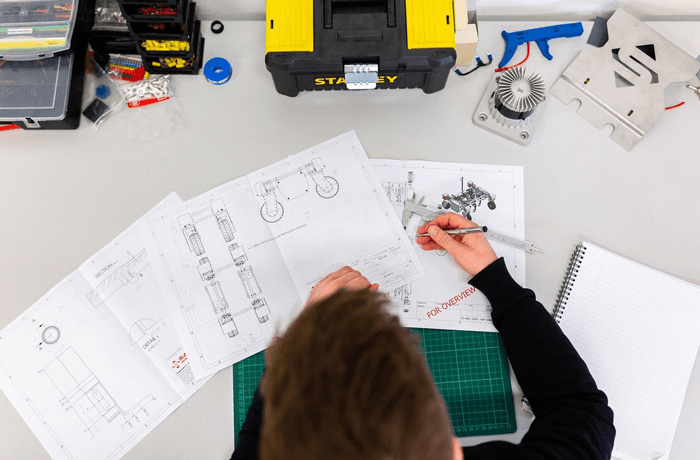Employers and Universities: Work with us?

60 Second Interview: Design Engineer
Louise is a design engineer at JCB, where she is undertaking a degree apprenticeship. In this interview with a design engineer, Louise explains how she splits her time between university and work - and how you can follow in her footsteps.

Name: Louise
Employer: JCB
Job title: Loadall apprentice design engineer
Apprenticeship title: Advanced manufacturing engineering
What does your role involve?
I study one day a week at university and work four days per week as a JCB design engineer. I work in the Loadall new product team of six, and am involved from conception through to delivery. I design a variety of different systems and components, working with different departments to ensure smooth delivery of JCB Loadalls.
Most of my time is spent working on Computer Aided Design software, working on technical and challenging designs. I spend time in the workshop, working with fitters on prototype builds, problem solving and helping out. I also attend meetings and send emails.
What subjects did you study?
My GCSEs were maths, science, English, the Engineering Diploma, IT, product design and German. At A-level I studied engineering, maths, physics and the Extended Project Qualification (EPQ).
How do you use your knowledge of design and technology in your role?
From designing parts, ensuring they are strong enough, are compatible and designed to be as cost effective. Analysing data, doing complex calculations and communicating with technical knowledge. When working with fitters, ensuring the correct procedure is followed and the design is correct to the drawings.
Why did you choose to do an apprenticeship?
Working alongside experienced engineers, learning job-specific skills and gaining a professional qualification, whilst earning and having the opportunity to travel with JCB. Choosing an apprenticeship was a brilliant decision!
Do you have any tips on staying organised, time-management and working in a team?
I found adjusting to work challenging, from remembering the names of hundreds of people to the long hours, but after the first few weeks I got used to it. If you have a desk, try to keep it tidy: tidy desk, tidy mind. This also helps to stay organised and help you know where everything is. Don’t be afraid to ask questions: everyone is willing to help, but try and learn from these so you don’t have to ask the same question over again. If you can, attend socials as a team; you see a different side to people than at work.
What advice do you have for someone who wants to do your role?
A-level maths is key for an engineering degree apprenticeship. Work hard and take as many opportunities as possible to develop your skills, help you stand out and also give you talking points for future interviews.
Where do you see yourself in the future?
Within the next five to 10 years, after completing my Bachelor’s in engineering, I want to become a competent Design Engineer. I aspire to then progress into a senior Design Engineer.
If you enjoyed this interview with a design engineer and are interested in following Louise's path, check out our guide to engineering apprenticeships.
